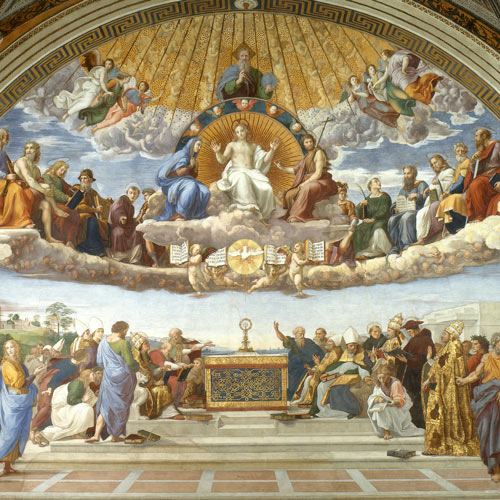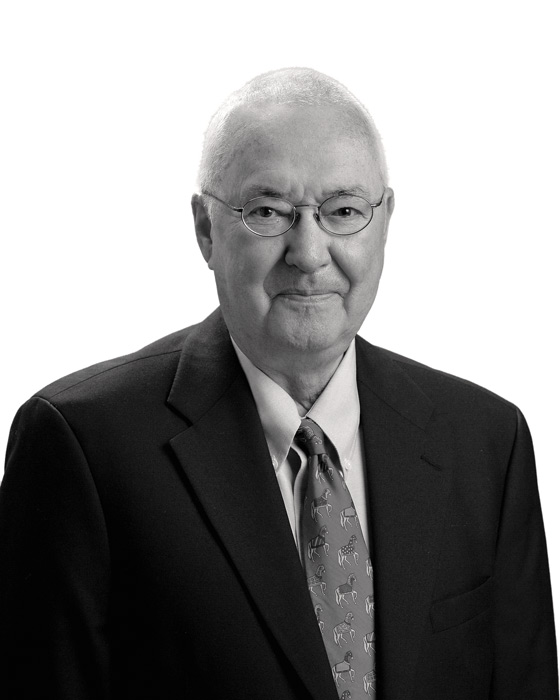READING AS REVELATION
READING THIS WORK GAVE ME A FRAMEWORK TO ENCAPSULATE THE WHOLE OF THEOLOGY INSTEAD OF MASTERING ITS PARTS.
Every now and again, you read a book that completely changes the way you understand the world or sets you on a different path of enlightenment.
Such was the case decades ago when I was a student of theology in Europe. Somehow, Edward Schillebeeckx’s book “Christ the Sacrament of the Encounter with God” came into my hands, which I read in French, a welcome respite from the Latin texts (and lectures!) that were at the core of our university education. (I still remember that the translator excoriated readers in his introduction for not learning Dutch, which is the language in which Schillebeeckx wrote.)
Of course, at our university, we studied the seven sacraments as part of our curriculum, but they were considered individually in separate tracts that combined dogmatic reflection, moral theology and canon law. What Schillebeeckx proposed was something far more capacious.
Starting with the accepted notion that a sacrament was a visible sign of an invisible grace, he argued that to focus narrowly on the seven sacraments of the church was too constricted of an understanding of signs. What he envisioned was a generous understanding of a visible sign of God’s invisible power and grace. After all, in the early church — Augustine comes immediately to mind — the term sacramentum had a variety of meanings. It was only in the medieval period that we began to give a technical meaning to the seven sacraments.
Schillebeeckx invited the reader to understand the notion of a sacrament in a far broader fashion. In his perspective, the first great sign or sacrament was creation itself. From the Genesis insistence that God created the heavens and the earth, proclaiming it as good, to the psalmist’s insistence that “the heavens tell of the glory of God and the firmament proclaims his handiwork” (Psalm 19:2), the Bible is clear that all creation comes from God, that God is knowable through creation and that creation is a good creation.
 Just as creation is a visible sign of God, so is the visible fact of the Jewish people chosen by God as a sign of his covenant with a specific people in history. Finally, Christ is the Great Sacrament of God because in Christ, both creation and history are summed up as the definitive sign of God’s love for the world and its people.
Just as creation is a visible sign of God, so is the visible fact of the Jewish people chosen by God as a sign of his covenant with a specific people in history. Finally, Christ is the Great Sacrament of God because in Christ, both creation and history are summed up as the definitive sign of God’s love for the world and its people.
Christ, of course, was visible, and he left a community that is visible. That community works through signs or sacraments. Not to put too fine a point on it, Schillebeeckx invited us to think of sacramentality as a sort of master motif in understanding the whole of revelation.
Looking back on Schillebeeckx’s book from the passing of 60 years, his work does not look at all that startling since much of what he said has been articulated in the documents of Vatican II and the work of other theologians. Seen from the vantage point of my own callow youth and the somewhat cramped education I was getting, the book seemed revolutionary to me.
First, this was a book that forced me to understand the whole as opposed to its parts. As students, our studies came to us in fragments: Treatises on creation, Christology, the sacramental life were discrete considerations. We were educated to think of seven sacraments rather than to think of sacramentality as a whole. This work, by contrast, asked us to consider the whole by demanding that we look carefully at the theological tradition that provides us with a concept of visible sign and invisible grace. Reading this work gave me a framework to encapsulate the whole of theology instead of mastering its parts.
Second, I began to understand (however dimly) that beneath the dry formulations of dogma was a rich and thick reservoir of sustained reflection by individuals in the church who had thought long and hard about the mysteries of faith. If I was to be a theologian, I shouldn’t be satisfied with memorizing the tradition as it was handed down. I needed to study and think more deeply in order to better grasp its meaning. In other words, the theologian must be obedient to the dictum once enunciated by the medieval thinker Anselm of Canterbury that theology is “faith seeking understanding.”
Reading that book at that stage of my life was also a needed shot of academic humility. When I was in my 20s, I thought I had the answers to all the big questions. Now six decades later, I am beginning to see what the deepest questions are. Schillebeeckx undercut my tidy intellectual scaffolding of having everything in place in my mental storehouse.
The most important lesson is that I am still a scholar in training. Chaucer’s scholar said that he would gladly learn and gladly teach. Woe to the scholar who does not learn.
I am a better teacher today than I was 20 years ago simply because I have studied more, written more and thought more. Part of that continuing education meant encountering other scholars whose writing has changed my mind. Perhaps this isn’t a common occurrence, but it does happen. That’s the reason I continue to read — in the hope that I will learn something new and, on occasion, discover something that changes my mind in a profound way as it did years ago.
About the art: The Disputation of the Sacrament, painted by Italian Renaissance artist Raphael, depicts a scene spanning both heaven and earth. With God the Father above all, Christ sits in the center flanked by the Mary and John the Baptist to his right and left, accompanied by a variety of Biblical figures.
 Lawrence S. Cunningham is the John A. O’Brien Professor of Theology Emeritus at the University of Notre Dame.
Lawrence S. Cunningham is the John A. O’Brien Professor of Theology Emeritus at the University of Notre Dame.

Comments